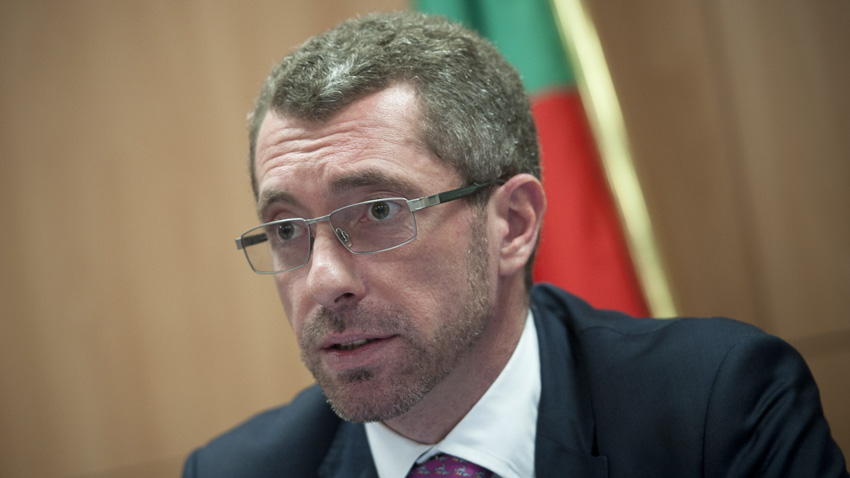From 20 to 23 January, a delegation sent by the Committee on Civil Liberties, Justice and Home Affairs of the European Parliament visited a few refugee camps in Bulgaria to gain firsthand experience about life there. The MEPs have seen for themselves that obvious progress has been made and conditions are now satisfactory. The report that they are going to draw up will incorporate recommendations for stronger solidarity of all EU member countries for tackling the challenge of an ever growing refugee wave to EU.
 “At first, the shock at the refugee inflow was hard to handle, as it exceeded significantly Bulgaria’s original capacity to accommodate migrants,” the head of the mission Frank Engel told Radio Bulgaria. “With time, however, the country has moved closer to meeting international standards for decent conditions of living provided to people in trouble. And efforts in this direction should continue.”
“At first, the shock at the refugee inflow was hard to handle, as it exceeded significantly Bulgaria’s original capacity to accommodate migrants,” the head of the mission Frank Engel told Radio Bulgaria. “With time, however, the country has moved closer to meeting international standards for decent conditions of living provided to people in trouble. And efforts in this direction should continue.”
Bulgaria, being a front-line country meeting refugees by war-torn Syria, should not be left to carry the burden of migration pressure on its own, MEPs argue. Solidarity with people in trouble is a key European value and we cannot ask Bulgaria to become the only exponent of it, Mr. Engel, MEP from Luxemburg remarked.
“Yes, Europe sets requirements for solidarity but let us not expect that someone else shall comply with them: someone else who has come under pressure from circumstances that are unpredictable and uncontrollable. It is now the moment for European solidarity. Amid a major inflow of refugees, EU and all countries in it should get involved in curbing the crisis.”
The MEP contends that most southern EU countries face huge migration pressure. Bulgaria however has received less financing than its counterparts in the region.
Similar to many Europeans, the family of Mr. Engel has had migration experience.
“During World War 2 part of my family found refuge in France. There were people who helped my family when it was in big trouble. One, two or three generations back, almost every family in Europe lived through such ordeals. Most of us have been refugees counting on European solidarity. Now we have to act with solidarity, and I hope that Europe is still able to produce adequate acts of solidarity.”
Based on the developments in the Middle East and Africa Frank Engel forecasts that migration problems will continue to trouble Europe in the long term and are likely to intensify in the spring and summer. He believes that Bulgaria has the capacity to tackle a new stronger wave. “Well, unless the flow comes all too strong and multitudinous and then no one will be able to handle it properly”, Mr. Engel admits.
He says that the people coming from Syria in search of international protection represent a challenge for the entire EU. In latest figures, 700,000 Syrians are located in the territory of Turkey, and as many in Lebanon. More than 6 million have been displaced in Syria itself as a result of the war. In this sense, once the inflow to Europe reaches such dimensions, the bloc has to revise its asylum policies, the MEP contends. Under the current agreement known as Dublin-2 each EU country to which refugees arrive, should tackle the problem of their accommodation on its own until it processes their asylum applications. In this way pressure is distributed unevenly, and creates problems with the human rights of refugees themselves, as well as with the stability of recipient countries, analysts who are critical of such policies argue. These arguments have been confirmed by the refugee crisis that Bulgaria has been facing over the last six months.
English version: Daniela Konstantinova
A pistachio plantation has been planted for the first time in Bulgaria near Sandanski (Southwest Bulgaria). It spans 22 decares (2.2 hectares). The investment was made by a Sofia businessman, BNT reported . The first harvest is expected within 2-3..
According to a 2023 National Statistical Institute study, more than 88% percent of households in Bulgaria have access to the Internet. Most users are online every day, and more than 95% are active on social networks. The share of people who read the..
Radio Bulgaria, as a program of the BNR published in 11 languages, has an audience spread over six continents. Part of it has a special attitude towards our country and wants to learn more about its history, culture, traditions and..
In response to a listener's question, in a series of publications Radio Bulgaria presents to its multilingual audience the types of documents giving the..
A little over 1,450 Leva is the sum needed per month by an individual living in a one-person household, and a total of 2,616 Leva for the monthly..
The traditional "Easter Workshop" will be held from April 23 to 26 in the Ethnographic Exposition of the Regional History Museum - Pazardzhik...

+359 2 9336 661
